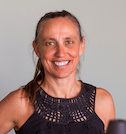
Dorothee Kern
Brandeis University
USA
EMBO Workshop
This conference will take place at EMBL Heidelberg, with the option to attend virtually. Proof of COVID-19 vaccination or recovery is required for on-site attendance. Please see EMBL’s COVID-19 terms and conditions.
The conference sets the stage for the dissemination and exchange of new developments in diverse, hot fields within chemical biology. It is the largest and longest standing conference in the field, being a platform for inspiration, collaboration and networking for researchers in academia and industry. We aim to provide the possibility for every chemical biologist to meet and discuss with peers on topics ranging from tool development to biological applications, from computational drug design to synthetic chemistry.
“The conference was very well organised with an amazing programme, great speakers and it has proved a valuable source of information! A very challenging and worthwhile experience!” Rosalba Sortino, Institute for Bioengineering of Catalonia
“The EMBO Chemical Biology Workshop 2020 was super! Inspiring talks and very well organised! I had the opportunity to give a short-presentation and got interesting feedback and discussion!” Dr. Ma. Florencia Sanchez, Institute for Biochemistry, University of Frankfurt

Brandeis University
USA
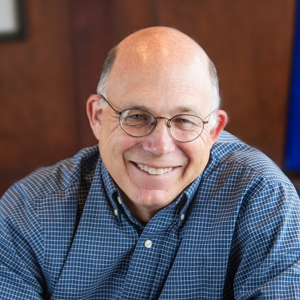
The Scripps Research Institute
USA
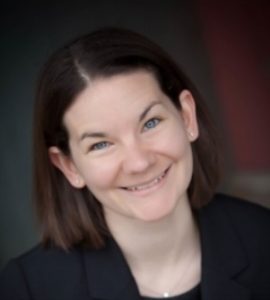
Harvard University
USA
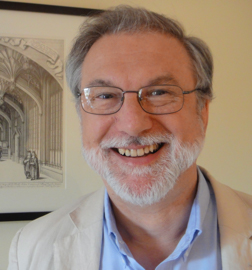
University of Oxford
UK
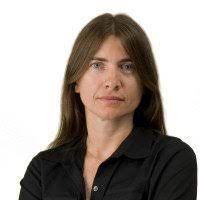
Sloan Kettering Institute
USA
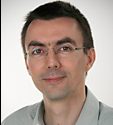
German Cancer Research Center (DKFZ)
Germany
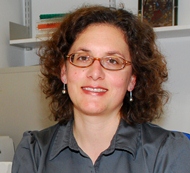
King’s College London
UK
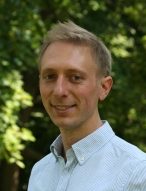
Karolinska Institutet
Sweden
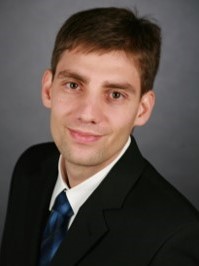
Bayer AG
Germany

Weizmann Institute of Science
Israel
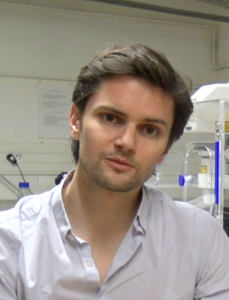
Sorbonne University
France
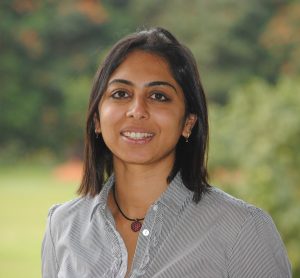
University of Chicago
USA

Stanford University
USA

Weizmann Institute of Science
Israel
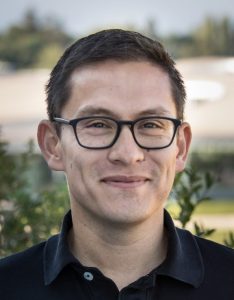
University of Zurich
Switzerland
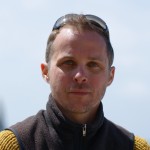
Institut Curie
France

The University of Tokyo
Japan
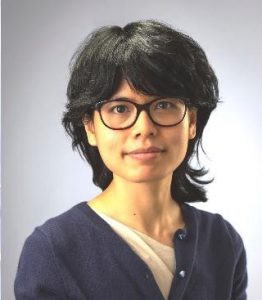
EPFL
Switzerland
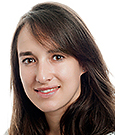
EMBL Heidelberg
Germany
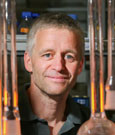
Max Planck Institute for Medical Research
Germany
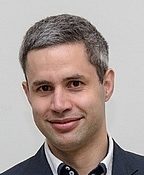
JGU & IMB Mainz
Germany
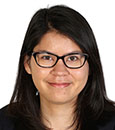
EMBL Heidelberg
Germany
Got something to say? Tweet it! #EMBOChemBio
| Time (Europe/ Berlin) | Speaker |
|---|---|
| 11:00 – 13:00 | Registration and Lunch |
| 11:40 – 12:40 | Pre-conference workshop by Springer Nature (registration required) |
| 13:00 – 13:10 | Opening remarks |
| 13:10 – 16:45 | Session 1 Session chair: Arnaud Gautier |
| 13:10 – 13:45 | Quantitative Chemical Imaging in Immune Cells Yamuna Krishnan – University of Chicago, USA |
| 13:45 – 14:20 | ChemoX: a chemogenetic platform of FRET pairs for the rapid development of biosensors offering tunable wavelengths and multi-modal readout Julien Hiblot – Max Planck Institute for Medical Research, Germany |
| 14:20 – 14:35 | Investigation of the intracellular transport of ether lipids Kristin Böhlig – MPI-CBG, Germany |
| 14:35 – 15:05 | Coffee Break |
| 15:05 – 15:40 | Covalent ligand directed release chemistry Nir London – Weizmann Institute of Science, Israel Not available on demand |
| 15:40 – 15:55 | Phosphotriesterase based chemical-genetic tools for controlled release of chemical reporters Kesava Phaneendra Cherukuri – Weizmann Institute of Science, Israel |
| 15:55 – 16:10 | How small can we go? Miniaturized chemical tags for optical imaging Fabio De Moliner – The University of Edinburgh, UK |
| 16:10 – 16:45 | 15 Flash talks (2 min/1 slide) selected from abstracts – Sebastian Andrei – #60 – Sara Bottone – #48 – Francesca Canyelles – #52 – Xinlai Cheng – #56 – Elena De Vita – #62 – Matthew Deen – #64 – Niklas Freund – #70 – Kyohhei Fujita – #72 – Sean Thomas Hennigan – #92 – Kuan-Ting Huang – #94 – Cristina Jimenez Lopez – #98 – Julie Karpenko – #100 – Weifeng Lin – #112 – Ben Mortishire-Smith – #122 – Minh Nguyen Trung – #126 Not available on demand |
| 16:45 – 18:30 | Poster session 1 (even numbers) |
| 18:30 – 19:30 | Keynote Session Dorothee Kern – Brandeis University, USA |
| 19:30 – 21:00 | Dinner |
| Time (Europe/ Berlin) | Speaker |
|---|---|
| 09:00 – 12:15 | Session 2 Session chair: Yamuna Krishnan |
| 09:00 –09:35 | Fluorescent chemogenetic reporters to spy on cells Arnaud Gautier – Sorbonne University, France |
| 09:35 – 10:10 | Discovery of a druggable copper signaling pathway that drives cell plasticity and inflammation Raphael Rodriguez – Institut Curie, France |
| 10:10 – 10:25 | RNA methylation and postsynthetic labelling catalyzed by ribozymes Claudia Höbartner – Julius-Maximilians-University of Würzburg, Germany Not available on demand |
| 10:25 – 10:40 | The development and characterisation of a novel antimalarial class targeting a putative mitochondrial carrier protein Brodie Bailey – Walter and Eliza Hall Institute, Australia |
| 10:40 – 11:10 | Coffee break |
| 11:10 – 11:45 | Mechanisms of thiol based redox signaling Tobias Dick – DKFZ, Germany Not available on demand |
| 11:45 – 12:00 | Chemoproteomic target deconvolution of metallo-enzyme drugs Severin Lechner – Technical University of Munich, German |
| 12:00 – 12:15 | Macrocyclic peptides that display potent allosteric inhibition of O-GlcNAc transferase and their use as chemical tools Jil Busmann – Simon Fraser University, Canada Not available on demand |
| 12:15 – 12:30 | Function-guided proximity mapping in C. elegans directed by local electrophile responsivity Jinmin Liu – EPFL, Switzerland Not available on demand |
| 12:30 – 14:00 | Lunch |
| Session 3 Session chair: Raphael Rodriguez | |
| 14:00 – 14:35 | Chemical biology to understand and harness the innate immune STING pathway Lingyin Li – Stanford University, USA |
| 14:35 – 15:10 | Towards a Chemical Biology platform for the systematic discovery and evaluation of novel covalent chemistry Sebastian Essig – Bayer, Germany Not available on demand |
| 15:10 – 15:25 | Anticipatory design of SARSCoV2 protease inhibitors for antiviral resistance mutants Michael Westberg – Stanford and Aarhus University, USA Not available on demand |
| 15:25 – 15:40 | Reconstitution of S. aureus agr quorum sensing reveals a direct role for the integral membrane protease MroQ in pheromone biosynthesis Steven Bodine – Princeton University, USA |
| 15:40 – 16:10 | Coffee break |
| 16:10 – 16:45 | Structural basis of FANCD2 deubiquitination by USP1-UAF1 Helen Walden – University of Glasgow, UK |
| 16:45 – 17:00 | Bacterial Biosensors that can compute Ramez Daniel – Technion – Israel Institute of Technology, Israel |
| 17:00 – 17:20 | 7 Flash talks (2 min/1 slide) selected from abstracts – Nüket Bilgen – #47 – Mohammad Eid – #67 – Malte Gersch – #81 – Ori Green – #79 – Stephan Hacker – #171 – Wouter Kallemeijn – #99 – Michelle Hundevad Rasmussen – #137 Not available on demand |
| 17:20 – 18:00 | Meet the speakers session and pre-dinner drinks |
| 18:00 – 19:45 | Dinner in EMBL Canteen |
| 19:45 – 21:30 | Poster session 2 (odd numbers) |
| Time (Europe/ Berlin) | Speaker |
|---|---|
| Session 4 | |
| 09:00 – 09:35 | The roles of lipids in cell biology Ulrike Eggert – King’s College, UK Not available on demand |
| 09:35 – 10:10 | Deciphering the human microbiome with chemistry Emily Balskus – Harvard University, USA |
| 10:10 – 10:45 | Computational design of enzyme repertoires Sarel Fleishman – Weizmann Institute of Science, Israel |
| 10:45 – 11:15 | Coffee Break and Meet the speakers |
| 11:15 – 11:30 | CaProLa: a Ca2+ dependent protein labeling tool for neuronal activity integration in multi-color Magnus Huppertz – Max-Planck-Institute for Medical Research, Germany |
| 11:30 – 12:05 | Illuminating protein-protein interaction networks in disease through chemical biology Gabriela Chiosis – Sloan Kettering Institute, USA |
| 12:05 – 12:20 | Glow-in-the-dark diagnostics using bioluminescent sensor proteins Eva van Aalen – Eindhoven University of Technology, Netherlands |
| 12:20 – 12:35 | Biological hydropersulfides suppress lipid peroxidation and ferroptosis by scavenging free radicals Uladzimir Barayeu – German Cancer Research Center (DKFZ), Germany |
| 12:35 – 13:10 | Chemical medicine: New cancer medical technology based on live fluorescence imaging of each patient Yasuteru Urano – University of Tokyo, Japan |
| 13:10 – 14:40 | Lunch |
| 14:30 – 15:00 | Meet the editors & further networking – Kai Johnsson (JACS) – Yimon Aye (ACS Chemical Biology) – Katja Glatz (Chemistry – A European Journal, ChemBioChem and ChemistrySelect) – Edward Lemke (Journal of Molecular Biology) – Sarah Whitbread (RSC Chemical Biology) – Laura Woodward-Heni (Angewandte Chemie) |
| Session 5 Session chair: Pablo Rivera Fuentes | |
| 15:00 – 16:00 | Keynote lecture: Playing with the molecules of life Peter Schultz – The Scripps Research Institute, USA (remotely) Not available on demand |
| 16:00 – 16:15 | Photo-immobilisation for target profiling of natural products and cofactors Polina Prokofeva- Technical University of Munich, Germany |
| 16:15 – 16:30 | The choline metabolite-interacting proteome of mammalian cells: discovery and significance Aditi Dixit – Indian Institute of Science Education and Research (IISER), Pune, India |
| 16:30 – 16:50 | 8 Flash talks (2 min/1 slide) selected from abstracts – Robert B. Quast – #134 – Efrat Resnick – #139 – Maria Florencia Sánchez – #144 – Cong Tang – #155 – Alexandra Teslenko – #156 – Oliver Thorn-Seshold – #172 – Janelle Tobias – #158 – Kaveri Vaidya – #162 Not available on demand |
| 16:50 –17:20 | Meet the speakers & coffee break |
| 17:20 – 18:50 | Poster session 3 (all) |
| 18:50 – 21:15 | Dinner |
| 21:15 – 22:30 | After dinner drinks and Live Jazz music |
| Time (Europe/ Berlin) | Speaker |
|---|---|
| 09:00 – 12:30 | Session 6 Session Chair: Edward Lemke |
| 09:00 – 09:35 | Expanding the chemical biology toolbox for mammalian cells Simon Elsässer – Karolinska Institutet, Sweden |
| 09:35 – 10:10 | Chemical tools to study redox biology Pablo Rivera-Fuentes – University of Zurich, Switzerland Not available on demand |
| 10:10 – 10:25 | Deciphering chromatin ubiquitylation involving RNF168 using chemical biology Pauline Franz – Ecole Polytechnique Fédérale de Lausanne (EPFL), Switzerland |
| 10:25 – 10:40 | Exploring the scope of JmjC-KDMs catalysed N-methyl arginine demethylase activity Joanna Bonnici – Newcastle University, University of Oxford, UK |
| 10:40 – 11:10 | Coffee Break and Meet the speakers |
| 11:10 – 11:25 | Engineering of a pH-switchable generic antibody-blocking protein Lieuwe Biewenga – Technische Universiteit Eindhoven, The Netherlands |
| 11:25 – 11:40 | A method for conditional control of cellular protein stability using an excisable degron tag Yuki Utsugi – University of Tsukuba, Japan |
| 11:40 – 12:15 | Single-molecule chemistry in a protein nanoreactor Hagan Bayley – University of Oxford, UK Not available on demand |
| 12:15 – 12:30 | Closing Remarks and Poster Prize |
| 12:30 – 13:00 | Packed Lunch and departure |
| 13:00 | Optional: Bus to Frankfurt Airport (Terminal 1) – Tickets can be purchased on-site for 25 EUR |
On-site registration fees include admission, conference materials, COVID-19 safety measures, meals and coffee breaks. Participants are expected to book and pay their own accommodation and travel expenses.
Virtual registration fees include access to all of the talks (livestreamed and on demand) and facility to submit questions.
| On-site Academia | € 450 |
| On-site PhD Student | € 350 |
| On-site Industry | € 700 |
| Virtual Academia | € 175 |
| Virtual PhD Student | € 125 |
| Virtual Industry | € 225 |
NO visa support letters will be issued until payment of the registration fee is confirmed.
Accredited journalists may be eligible to register for complimentary press registration. Registrants may be required to provide accreditation or equivalent proof of press membership after registration. Please contact Lea Hohmann for more information. Please note that we do not offer complimentary registrations for editors of scientific journals.
Registration will be on a first-come first-served basis. Your place can only be confirmed after payment of the registration fee. If you are added to our waiting list, please consider taking advantage of our offerings to participate virtually.
On-site participants: Types of payments accepted are international bank transfers and credit card payments.
Virtual participants: We are only able to accept card payments. In exceptional cases we can accept bank transfers. Please contact events@embl.de for details.
Only registered participants attending the on-site event are eligible to submit an abstract. Abstracts will not be accepted from virtual participants.
After you have logged in and successfully registered, you will receive an email asking you to submit your abstract. Click on the link provided and enter your abstract in the text box provided. Alternatively you can submit your abstract by clicking on the link on the confirmation page directly after registering. The same login credentials are used for both processes.
Please note:
Title: The title should not exceed 20 words. Only the first word of the title should start with a capital letter and the rest of the title should be in lowercase.
Authors and affiliations: Please fill in the author’s details as requested in the online form. The compulsory details are: First Name, Last Name, Organisation Name (Affiliation or Company), Country and Email. Mark only one author as the role of First author and please don’t forget to indicate who will be presenting. The order of the authors will be listed as follows: First Author, Co-First Author (alphabetically if multiple), co-author(s) (in the order added by the submitter).
Optional: if you would like to upload an image in conjunction with your abstract please note:
Presentation types: When submitting your abstract, you can apply for an oral or poster presentation. A selection process will take place with the results announced 2-3 weeks after the abstract submission deadline.
Please check our FAQs pages for further information on how to submit an abstract.
Limited financial assistance is provided by the EMBL Advanced Training Centre Corporate Partnership Programme and EMBO in the form of both registration fee waivers and travel grants. Availability is limited to participants attending on-site events in Heidelberg and will be indicated during the abstract or motivation letter submission process.
Your place in the meeting is only confirmed by paying the registration fee, which is mandatory even when receiving a fee waiver.
The fee waiver will cover the registration sum that you have paid to attend the course or conference.
The travel grant will cover the cost of travel (airfare, train, bus, taxi, accommodation, visa, and/or registration fees*) and is provided up to specified caps which are normally as follows:
– up to €400 for participants travelling to an EMBL Course, EMBL Conference or EMBO|EMBL Symposium from within Europe.
– up to €1000 for participants travelling to an EMBL Course, EMBL Conference or EMBO|EMBL Symposium from outside Europe.
– up to €500 for any participant travelling to an EMBO Practical Course or EMBO Workshop.
– up to €1000 for any participant working in Chile, India, Singapore or Taiwan travelling to an EMBO Practical Course or EMBO Workshop.
*Registration fees are only covered for EMBO Practical Courses or EMBO Workshops
The organisers may reduce the grant cap to accommodate more participants. Recipients will be notified of their travel cap amount when they are informed of the outcome of their application. Original receipts must be provided with your signature for all costs incurred within two months of completion of travel. Scanned copies cannot be accepted.
You may apply for financial assistance when submitting your motivation letter for courses, and abstract for conferences. In your application you will be asked to answer questions regarding why your lab cannot fund your attendance and how your attendance will make a difference to your career. Application for financial support will not affect the outcome of your registration application.
For the Boehringer Ingelheim Fonds Travel Grant, there is a pre-application question during the motivation letter submission process, and if selected you will be requested to complete a standard form and documentation consisting of your travel expense estimation.
The scientific organisers will select the recipients of all financial assistance during the motivation letter or abstract selection process. Results will be announced approximately 6-8 weeks before the event start date, however for some events this may be delayed. Selection results do not impact your admission to the meeting. Selection is based on your current work or study location, the reasons for needing financial support and the impact this event will have on your career.
Costs will be reimbursed after the meeting only once a reimbursement form and original receipts (from travel costs) have been received.
View our list of external funding opportunities and information on attending a conference as an event reporter.
For further information about financial assistance please refer to the FAQ page.
Accommodation is not included in the conference registration fee.
As further changes in our events are possible due to COVID-19, you should book flights, trains and hotels with flexible options and favourable cancellation conditions.
The hotels below have rooms on hold for participants until 4 August 2022, in some cases at special rates. Please quote the booking code CHB22-01 and confirm the exact price of the room with the hotel directly.
Conference shuttle buses are free of charge for participants, and depart from designated bus stops near the hotels to EMBL and back, mornings and evenings.
Download the bus schedule here.
The bus stops for this conference are:
View Conference shuttle bus stops and hotels in a larger map. Please note that not every bus stop will be used for every event.
Address: EMBL, Meyerhofstraße 1, 69117 Heidelberg, Germany. For further information on getting to EMBL Heidelberg visit Public Transportation to the Venue. For information about accommodation and local transportation please refer to the FAQ page.
Please note that only on-site participants are able to submit abstracts and participate in the poster sessions.
We are using an event platform for this conference. More information about the platform will be shared ahead of the conference.
Additional information can be found in our Code of Conduct.
It is important to stay healthy and move around, especially when you are attending an event virtually. We have put together a few coffee break stretches and yoga videos in the conference platform for you to enjoy during the event.
Please use the Q&A function in the event platform.
If you have any other questions, you can go to the Help Desk in the event platform. Click on ‘more’ on the top menu and click Help Desk.
The programme is planned based on the Europe/Berlin time zone, unless otherwise stated. Please take your time zone into consideration when planning your attendance.
Please find additional information including FAQs, terms and conditions, COVID-19 safety policy and travelling to EMBL on our Information for Participants page.
COVID-19 information for on-site events at EMBL Heidelberg can be found in our COVID-19 FAQs.
Silver sponsor
Bronze sponsor
Event sponsor
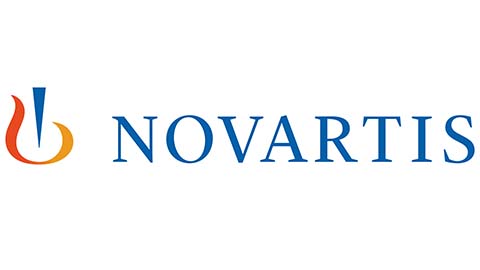
Media partners
Angewandte Chemie, a Wiley journal
EMBO reports, an EMBO Press journal
International Union of Biochemistry and Molecular Biology
Journal of the American Chemical Society, a journal of the American Chemical Society
Open Biology, a Royal Society journal
RSC Chemical Biology, Royal Society of Chemistry
Sponsorship opportunities
We offer a variety of event sponsoring possibilities, with the flexibility to select a set sponsorship package or combine individual sponsorship options to suit your event budget. Discounts are available for companies sponsoring multiple events at EMBL Heidelberg. View other conferences, or contact sponsorship@embl.de for further information.
If you are interested in becoming a media partner of this event, please visit our media partnerships webpage.
Industry webinar will be hosted by our sponsor Springer Nature prior to the EMBO Workshop: Chemical biology 2022
on Monday, 5 September, 11:40 – 12:40
Participation in this workshop is free of charge for registered conference attendees. The number of available places is limited (first come, first served). All registered conference attendees will receive an email with a registration link.
ABSTRACT
Speaker: Anja Riedel, Associate Product Manager, Springer Nature
Reproducing, and thereby building on previous research poses a major challenge within the life sciences [1]. More than 40% of respondents named the lack of available information about methods as a major contributor to the irreproducibility of published experiments [2]. In this interactive workshop, we will explore the role of protocols and methods to combat the reproducibility crisis and showcase how the Springer Nature Experiments platform can help scientists to find protocols and methods content in order to achieve more reproducible results. Springer Nature Experiments supports researchers in navigating the leading Springer Protocols & Methods portfolio, which includes the publications Springer Protocols, Nature Protocols, Nature Methods, and Nature Reviews Methods Primers.
[1] Borges, R.M. Reproducibility and replicability in science: A Sisyphean task. J Biosci 47, 15 (2022). https://doi.org/10.1007/s12038-022-00259-6
[2] Baker, M. 1,500 scientists lift the lid on reproducibility. Nature 533, 452–454 (2016). https://doi.org/10.1038/533452a

Date: 5 - 8 Sep 2022
Location: EMBL Heidelberg and Virtual
Venue: EMBL Advanced Training Centre
Deadline(s):
Abstract submission: Closed
Registration (On-site): Closed
Registration (Virtual): Closed
Organisers:
Contact: Lea Hohmann